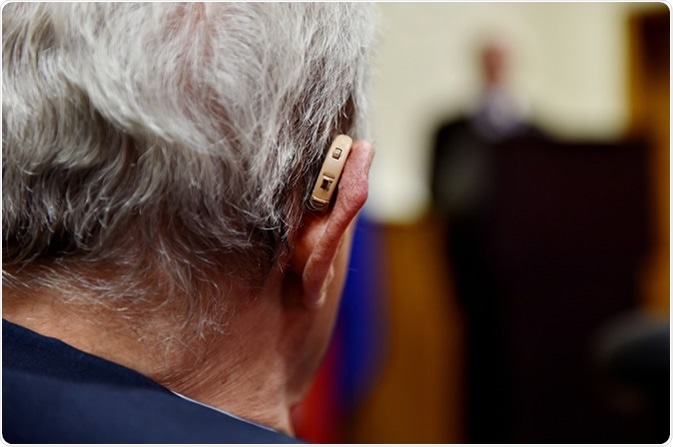Launching 1st March 2023. Also check out: https://www.thailandmedical.news/
Hearing loss is a state of partial or complete inability to hear. It affects people of all ages and can be genetic, developmental, congenital or a sudden occurrence. Sensorineural and conductive are the two broad classifications of hearing loss. Many factors such as malfunction of parts inside the ear, aging, and exposure to loud noise can cause hearing loss.
This is often an irreversible condition and for the rehabilitation of patients with hearing loss, much treatment is not available. Hearing aids and implants are the most common options for rehabilitation. Scientists and doctors all over the world are thus conducting various research to discover the reasons behind the condition and cure for this ailment. Most modern research is based on gene therapy and stem cells.
A few other research areas include the discovery of proper drugs, the study of hearing loss as a complication of other diseases, etc.

In 2005, gene therapy was experimented on guinea pigs to cure deafness. It promoted the regrowth of hair cells that recorded sound in the cochlea. This experiment gave hope for the development of the same procedure in humans.
In 2008, a similar method was experimented with mice, in which in utero gene transfer of Atoh1 initiated the growth of functional auditory hair cells in the cochlea. These new hair cells were capable of mechanoelectrical transduction. The researchers found that the controlling of the fate of the cell by misexpression of the transcription factor can produce functional sensory cells in the cochlea of mammals.
Experimentation with a transgenic mouse line that expressed human SLC26A4 was conducted in 2013 to study hearing loss due to the enlargement of the vestibular aqueduct. The study proved that to restore the normal inner ear function, restoration of pendrin to the endolymphatic sac is enough.
In a study conducted in 2015, transmembrane channel (TMC) was used to investigate whether genetic hearing loss is curable. It helped to restore the auditory functions in mice, suggesting the possibility of development of the same strategy for the restoration of deaf patients with the TMC1 mutation.
Columbia University under the Department of Otolaryngology—Head and Neck Surgery is conducting one of the world's first gene therapy trial for the hearing loss in man. In this experiment, an investigational drug that contains a gene is used for the regeneration of cells.
The Massachusetts Eye and Ear Infirmary in Boston, US, have done a study in regrowing the hair cells using embryonic stem cells. The natural development of the hair cells was accelerated by exposing chemical factors on the embryonic cells. These cells, when induced into chicken embryos continued to grow as the natural hair cells produced in the embryo.
The first study of whether stem cells can reconnect the inner ear to the brain was done in 2012. Dubbed otic neural progenitors (ONPs) formed by adding fibroblast growth factors to human embryonic stem cells were transplanted to the ears of gerbils and was treated with a chemical that damages the auditory nerve. Some transplanted cells had grown projections that formed connections to the brain stem weeks after transplantation.
Research by Harvard stem cell institute (HSCI): Research has been done by the scientists of HSCI for developing techniques that will help to grow hair cells in the laboratory so that it can be implanted into the ear. In other experiments, they also found that stem cell-derived auditory neurons will form new connections with damaged hair cells.
The list of major studies is given below:
Reviewed by Afsaneh Khetrapal BSc (Hons)